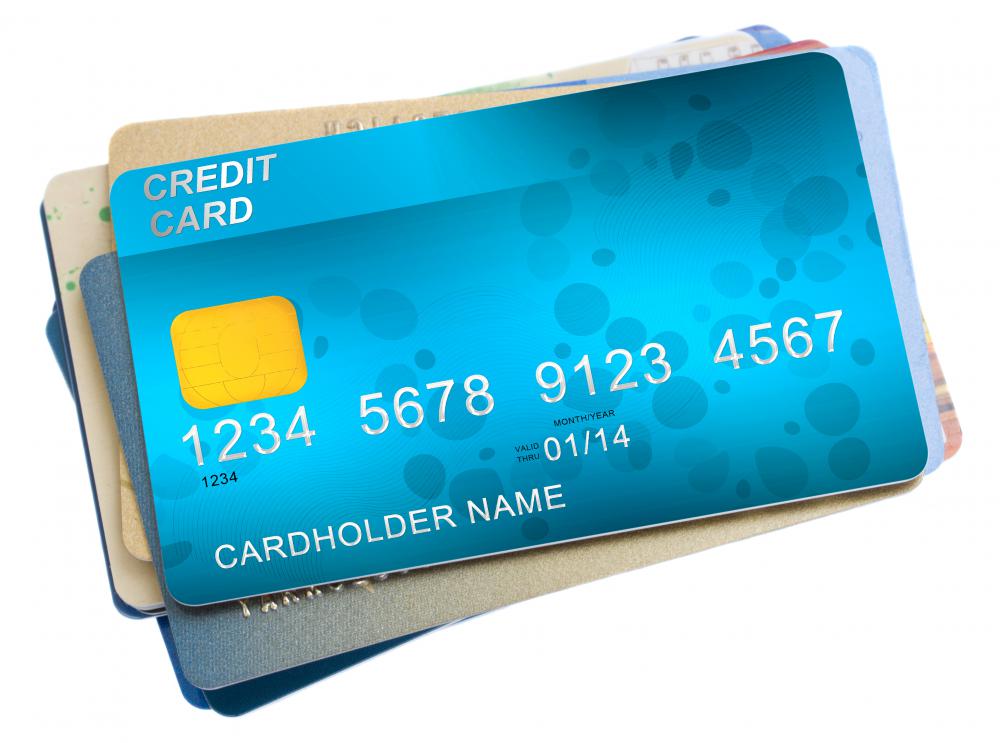At WiseGEEK, we're committed to delivering accurate, trustworthy information. Our expert-authored content is rigorously fact-checked and sourced from credible authorities. Discover how we uphold the highest standards in providing you with reliable knowledge.
What is an Adverse Credit History?
Adverse credit history can come under a number of different headings. It can also be known as a poor credit history, non-status credit history or impaired credit history. These terms are all used by credit companies when judging a person's credit history.
When someone applies for a loan, lenders, banks and credit card companies will look at that person's credit history in order to judge his or her financial credit standing. They gain this information from credit agencies, companies that track people's history of repaying credit and loans. They have information on individuals' financial transactions when repaying loans or credit. They are able to use this information to tell whether a person has a good or bad history of using credit.

Credit agencies track everyone's repayments on loans and other forms of credit. They keep this information on record and assign each person a credit score. If this number is below a certain amount, then the person will be marked down as having an adverse credit history. This may mean that he or she is unlikely to repay his or her credit transaction on time or that he or she may miss payments altogether.

Financial institutions such as banks and credit card companies purchase this information from the credit agencies. They, therefore, have at their disposal information to ascertain whether each person who applies for credit is a safe enough risk to lend to. This information can be used in corporate dealings and personal finance.
If a person is shown to have an adverse credit history, the lender may simply refuse to give him or her credit, or it may offer a lower amount of credit than requested. Due to the borrower's poor credit history, the lender may also offer credit at a much higher rate of interest than would be offered to someone with good credit.

There are many ways to change an adverse credit history and credit score. Obtaining help from a debt counseling service, or debt consolidation service if a person is in debt, can eventually raise his or her credit score closer to what is average. It may take many months or years to do this, but it is more financially viable in the long run.
People should also be aware that an impaired credit history might not always be the individual's fault. A credit agency may still show him as having a bad history with credit even if he have paid off his debts. Financial experts recommend that everyone get a copy of their credit information file yearly to verify their standing.

Many people have found that the information on a credit agency report is incorrect. There are debts that are sometimes not removed from the report even months and years after they have been paid off. These can still affect a person's credit history, and it is in the individual's best interest to have them removed.
AS FEATURED ON:
AS FEATURED ON:















Discussion Comments
Cafe41-Those are great options. I also want to add that Dave Ramsey has a show on the Fox Business Network that is quite informative.
He is an expert on helping people manage debt and improve their credit rating. He himself suffered a bankruptcy and he openly talks about this with his viewers.
It was this adversity that helped him understand money which led him to become the financial guru he is today. So if he can you it, so can you Anon16540. Don’t give up.
Latte31- I agree with you. I have excellent credit and my interest rate on my Visa is just 8.9%.
Anon16540- I just want to add that once you settle your debt you may be able to obtain a secured credit card from a local bank.
You fund a secured credit card with a bank account. The amount of the credit limit is always equaled to the amount in the bank account.
Here the bank lowers its risk because the funds are already in a bank account and are frozen for this purpose.
Overtime this helps you rebuild your credit, so you can save some money on those interest rates.
Anon16540- I am sorry that this happened to you. It is unfortunate that you dealt with an unethical company but settling your debt and even repairing your credit rating really goes a long way into restoring your ability to use credit in the future.
Restoring your credit will also help you obtain better rates on credit cards, mortgages and general loans. This is worthwhile because it will save you a lot of money.
It not unheard of for people with adverse credit to have an interest rate of 24% or higher on credit cards. That’s a lot of money which also makes it harder to pay down even the smallest debt. Most people with excellent credit pay a third of those rates.
These days Debt Settlement companies also spoil credit history of a person as has happened with me. They contact persons with good credit score, persuade them economic gains of at least 45% debt relief and trap them. In this process they get 25% of the credit amount as fees and most of hte times they don't settle the debt. Also credit score should be used carefully because lender make the mistake of denying credit to otherwise very viable andidates whose credit history has been spoiled by thieves or debt settlement agencies.
Post your comments